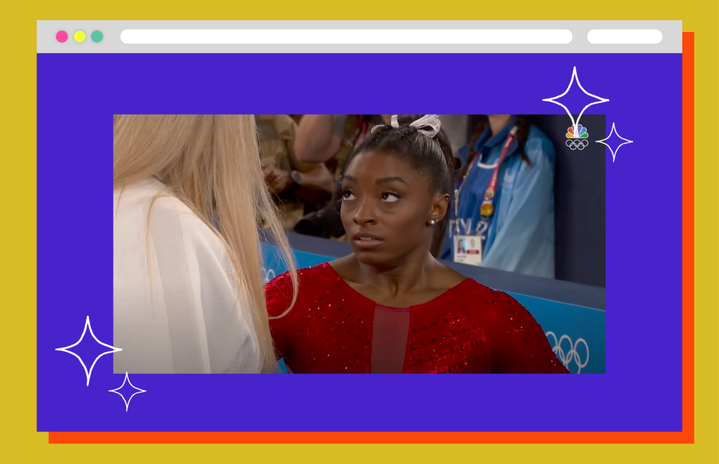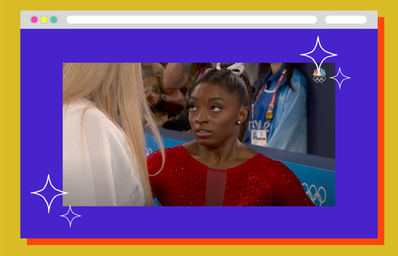After a year of postponement, the Olympics are finally here, and with it, an inevitable slew of Olympics criticism. And although I’m not really big on sports, part of what makes the Olympics so fun for me (and for much of Gen Z) is having an excuse to sit on the couch and chow down on as many snacks as my heart desires (honestly, it’s the same reason I watch the Superbowl). But while we vedge on the couch at home and watch our athletes represent our country, the reality that is not often acknowledged is that Olympians have relentlessly trained for years for this moment and are competing in some of the most challenging sports in the world.
And so I’ve been thinking about something: Why do we think we’re entitled to incessantly criticize them on their sport?
Following Simone Biles’ recent withdrawals from both the team final on July 27 and the all-around competition on July 28, many unqualified people were quick to unsolicitedly castigate the GOAT. Biles spoke on July 27 at the news conference after the team event about her decision to drop, saying, “It’s been really stressful, this Olympic Games. I think just as a whole, not having an audience, there are a lot of different variables going into it. It’s been a long week, it’s been a long Olympic process, it’s been a long year.” Biles demonstrated extreme bravery in prioritizing her mental health, especially considering she must have been under immense pressure to represent Team USA — and to me and many others, her decision to step away is completely understandable. But to some people? Apparently not.
Charlie Kirk, a conservative activist, verbally attacked Biles and even went as far as to call her a “sociopath.” Kirk said, “She probably could have just competed and [checked] the boxes, and they [Team USA] would have got a gold medal.” I’m sorry, but I didn’t realize Charlie Kirk was now an expert in women’s gymnastics, arguably one of the most difficult sports in the Olympic Games.
Why do we think we’re entitled to incessantly criticize Olympians on their sport?
And although this is an extreme example of bystanders’ criticism regarding Olympic athletes, there are more subtle instances of unwarranted critique of Olympians and their sport. TikTok user josh.brit02 recently posted a video with a clip of a Team USA Olympian competing in archery, writing, “When an 18 year old Olympian gets a 7 and loses while I would get all [10s] in wii sports resort archery at age 9” along with the trending sound “You’re trash, kid.” Another user, dylan_charlap, posted a similar video under the same sound, “Me watching 7 professional Olympic swimmers lose to Katie Ledecky by over 12 seconds” along with the caption “Like just go faster…”
Honestly, I’d like to see Josh and Dylan get up off the couch and try competing in the Olympics. Or even just try judging in the Olympics — that alone is hard enough.
Becoming a judge at the Olympics is extremely difficult — it doesn’t just take being passionate about the sport or having a big ego. First, before they can become an Olympics judge, judges must become a member of their respective sport’s International Sports Federation. These federations undergo a lengthy feat of nominating judges, determining things like their credentials and their overall knowledge of the sport — and then the International Olympic Committee either accepts or rejects these federations’ nominations.
People who are incredibly intelligent or skilled in one area may mistakenly carry that same confidence of expertise into a subject that they actually are not educated about.
I understand that these TikTok users were likely trying to make a joke, but instances like these do make me wonder why we like to think we know so much about the Olympics, and sometimes come off as even knowing more than what Olympic athletes know themselves — when we really don’t know anything about it. If anything, most of us are the least qualified people to talk about it. So… why do we do this?
It’s called the Dunning-Kruger effect. According to Verywell Mind, the Dunning-Kruger effect is “a type of cognitive bias in which people believe that they are smarter and more capable than they really are.” The psychological effect is named after social psychologists David Dunning and Justin Kruger, who conducted a study back in 1999 analyzing the phenomenon. Like me, Dunning and Kruger also wanted to find out why some people think they know so much about something when in reality, they are actually incompetent in it. What Dunning and Kruger discovered through this study and more research is that sometimes, people who are incredibly intelligent or skilled in one area may mistakenly carry that same confidence of expertise into a subject that they actually are not educated about. Essentially, their brain tricks them into thinking they’re competent in something that they really aren’t.
It turns out that we’re all affected by the Dunning-Kruger effect to some extent, and have likely experienced it ourselves at one point or another. For instance, think about your classmates. There may be that one person in your computer programming class who is a programming whiz, but they are a really bad writer — yet they somehow boast and believe that they are a good writer, unconsciously transferring their confidence into that topic as well.
We’ve all probably fallen under this trap while watching the Olympics, subconsciously thinking to ourselves, Wow, how did they mess up on that one event?
Ultimately, people like Kirk and even random TikTok teenagers on your FYP who talk and act as if they’re experts on the Olympics when they’re not are likely experiencing the Dunning-Kruger effect. And frankly, we’ve all probably fallen under this trap while watching the Olympics, subconsciously thinking to ourselves, Wow, how did they mess up on that one event?, or The other competitor was able to do that and it looked easy enough. So why can’t so-and-so?
So the next time you’re talking to your friend about Simone Biles’ performance and how she “could have done better,” put yourself in check. Are you really an expert on the Olympics, or does your brain just want you to think you are?
Studies Referenced:
Kruger, J., & Dunning, D. (1999). Unskilled and unaware of it: How difficulties in recognizing one’s own incompetence lead to inflated self-assessments.


